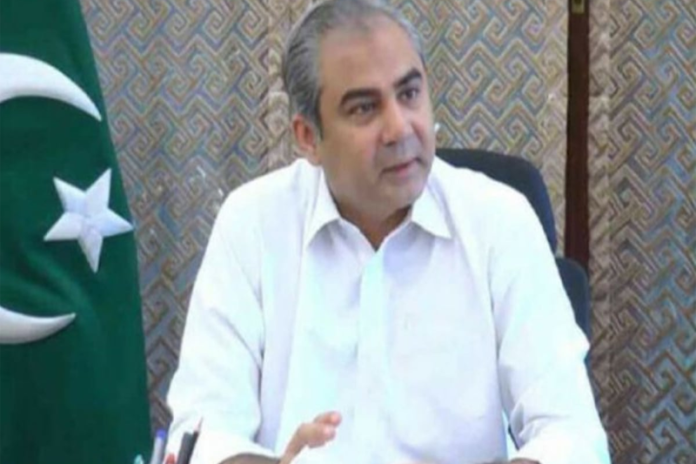Govt to abolish 150,000 vacant posts, says Aurangzeb

- 143
- 0
ISLAMABAD: Federal Minister for Finance and Revenue, Senator Muhammad Aurangzeb, announced on Tuesday that the government will abolish 150,000 vacant positions across various government departments as part of a comprehensive strategy to reduce federal expenditure.
Addressing the media in a press conference, Aurangzeb explained that this move is a part of the government's broader effort to streamline operations and reduce unnecessary financial burdens. Aurangzeb stated that the government has adopted a phased approach to decrease its spending, with the decision to eliminate vacant posts being a crucial step. He explained that the government had budgeted for these positions in the current fiscal year, but after careful evaluation, it was decided that approximately 60% of vacant regular posts would be abolished or classified as "dying posts." The total number of posts being abolished amounts to approximately 150,000, which, he emphasized, would have a significant impact on reducing unnecessary expenditures.
The decision to abolish these posts was made after receiving approvals from both the Cabinet and Prime Minister Shehbaz Sharif. The finance minister stated that this action would align the government's budgetary priorities with its goal of rightsizing the public sector to better suit the country's economic needs.As part of this rightsizing initiative, Aurangzeb also revealed that the government would outsource various non-core services, including cleaning, plumbing, and gardening, in order to improve efficiency and reduce costs. By outsourcing these services, the government aims to concentrate its resources on more critical functions, ensuring better utilization of public funds. In addition to the abolition of vacant posts, the finance minister shared that the government has also taken measures to streamline the operations of various ministries and government entities. One major decision includes the merger and dissolution of several state-owned entities (SOEs). The Ministry of Kashmir Affairs and Gilgit-Baltistan, along with the Ministry of States and Frontier Regions (SAFRON), will be merged, and the Ministry of Capital Administration and Development Division (CAD) will be dissolved. These changes have led to a reduction of 80 entities under these ministries, which have now been consolidated into just 40 entities. Furthermore, Aurangzeb highlighted that a similar restructuring plan has been implemented for entities under other ministries, such as the Ministry of Science and Technology, the Ministry of Commerce, the Ministry of Housing and Works, and the Ministry of National Food Security and Research.
A total of 60 entities under these ministries will be streamlined, with 25 entities being shut down, 20 reduced, and nine merged.Looking ahead, the government plans to extend the rightsizing efforts to additional ministries, including the Federal Ministry of Education and Professional Training, the Ministry of Information and Broadcasting, the Ministry of Natural Heritage and Culture, the Ministry of Finance, and the Ministry of Power. Aurangzeb confirmed that the entire process of rightsizing would be completed by June 30, 2025. When asked about the role of the private sector in the country's economic development, Aurangzeb reiterated that while the government's role is to establish a policy framework, job creation and economic growth largely depend on the private sector. The minister emphasized that the structural adjustments being made, including rightsizing and the abolition of vacant posts, align with the structural benchmarks set by the International Monetary Fund (IMF). Pakistan is currently under a 37-month, $7 billion loan program with the IMF, which was signed in July of the previous year. Aurangzeb acknowledged that while the rightsizing measures were partly driven by IMF conditions, they are necessary for the country's long-term economic stability. He stressed that these reforms would help improve the overall efficiency of government operations, enabling Pakistan to better manage its fiscal deficit and improve its financial health. In closing, the finance minister assured that all government departments and ministries are under review, with the goal of improving efficiency, reducing waste, and ensuring that public funds are utilized in the most effective manner possible. He also noted that the next review by the IMF is expected in February, and the government remains committed to fulfilling the structural requirements of the loan agreement.

















































